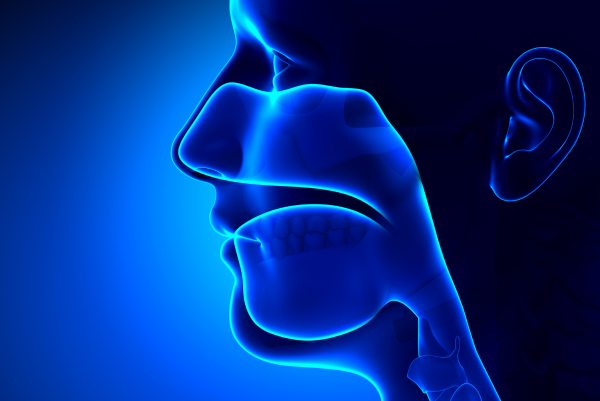Have you heard of adenoids? Adenoids play an important role in your child’s health. However, they disappear at a certain age, so many people don’t know what they are. Keep reading to learn more about the vital functions of adenoids in children.
- What Are Adenoids?
- What Is the Role of Adenoids in Overall Health?
- Conditions Affecting the Adenoids
- Symptoms of Enlarged Adenoids
- Adenoidectomy Surgery
- Can You Remove Adenoids?
- When is Adenoidectomy Surgery Necessary?
- The Adenoidectomy Procedure
- Recovering From Adenoidectomy Surgery
- The Benefits of Removing Enlarged Adenoids
- Schedule Your Consultation Today
What Are Adenoids?
Adenoids are small glands located in the upper airway behind the nasal cavity. They are vital components of the immune and lymphatic systems that help to fight infections and filter that you inhale from the air. These glands also help regulate the fluids in the body.
The adenoids are positioned just above the soft palate, directly behind the nasal cavity. If you look down your throat, you will see your tonsils but not your adenoids. Adenoids look like a pink patch of tissue similar to the tonsils. They are soft and often described as a cauliflower-like tissue mass.
The average size of an adenoid is 6.2 millimeters. However, enlarged adenoids vary greatly in size due to infection or allergies and can be as large as 11.6 millimeters. Enlarged adenoids are indications of hypertrophy or are diagnosed as adenoid hypertrophy.
Adenoid hypertrophy is a progressive condition that primarily affects children and adolescents up to the age of 16. Individuals with this condition have adenoids that increase in size from the age of onset until the age of 16. Adenoid hypertrophy can occur with or without infection. Because adenoids typically disappear by adulthood, the condition is rare in adults.
What Is the Role of Adenoids in Overall Health?
Adenoids play an essential role in keeping babies and children healthy. They help the body ward off germs and pathogens until the immune system is developed enough to take over and fight infections.
Below are some additional facts about adenoids:
- Adenoids reach their maximum size between the ages of 3 and 5.
- Adenoids shrink by the age of 8.
- Adenoids usually disappear by adulthood.
Adenoids help fight off infections and harmful germs just as your tonsils do. White blood cells move through your adenoids and trap germs and bacteria so that it does not move to the rest of your body. Adenoids also produce antibodies. Antibodies are proteins in the blood that help to fight unknown pathogens in your body, such as harmful bacteria and viruses.
Conditions Affecting the Adenoids
Inflammation occurs when the adenoids are exposed to or overwhelmed by bacteria, viruses, or germs. Common causes of adenoid inflammation include:
- Allergies
- Recurring nosebleeds
- Ear infections
- Sinus infections
- Colds
- Flu
- COVID-19
- Upper airway infections
Adenoidectomy (adenoid removal) focuses on removing enlarged or inflamed adenoids that partially block a child’s airway. An obstructed airway causes the following problems:
- Ear infections and fluid in the ears can cause temporary hearing loss. This infection can be uncomfortable or even painful.
- Chronic sinus infections cause long-term nasal drainage and frequent congestion.
- Breathing problems can occur during the day and escalate at night during sleep. For some children, swollen adenoids can cause sleep apnea. Sleep apnea can cause a child to stop breathing while they sleep.
- Your child could have trouble sleeping due to excessive snoring. This lack of sleep can lead to irritation during the day because of a lack of rest.
Symptoms of Enlarged Adenoids
Children suffering from enlarged or inflamed adenoids are sometimes asymptomatic, meaning symptoms aren’t present. However, they often exhibit one or some of the following signs that warrant a visit to an ENT in Los Angeles.
- Snoring
- Restless sleep
- Obstructive sleep apnea
- Mouth breathing
- Sore throat
- Fullness or heaviness in the ears
- Nasal congestion
Adenoidectomy Surgery
An adenoidectomy is a quick surgical procedure that removes enlarged adenoid glands. This surgery is necessary if a child’s adenoids have become enlarged or infected and can’t be treated with a course of antibiotics or nasal spray.
An adenoidectomy is also used to address sinus and ear infections and breathing problems due to adenoid enlargement. Most adults rarely need adenoidectomy surgery due to the size and inactivity of their adenoids. However, the surgery is an outpatient procedure done under general anesthesia.
Children under the age of one usually don’t undergo an adenoidectomy because they are more dependent upon their adenoids during this stage of development. However, as you get older, your body does not rely on your adenoids to fight off infections.
Can You Remove Adenoids?
Although adenoids are usually present at birth. Removing them doesn’t impair its ability to fight germs. In fact, enlarged or infected adenoids compromise immunity and overall health. Removing them surgically is often necessary. Many children lead healthy lives without their adenoids.
When Is Adenoidectomy Surgery Necessary?
On average, children between the ages of 1 and 7 need adenoidectomy surgery as the immune system strengthens during this period of development, and the adenoids may cause unnecessary discomfort before they disappear. The importance of their adenoids gradually decreases as they age.
At C/V ENT Surgical Group, our surgeons perform thorough assessments of your child’s adenoids and explain the surgical and non-surgical treatment options.
The Adenoidectomy Procedure
Adenoidectomy surgery takes about 30 minutes to perform. Our surgeons at C/V ENT Surgical Group perform adenoidectomy surgery under general anesthesia to prevent any discomfort. If your child’s tonsils are also enlarged or infected, our surgeons can perform both adenoidectomy and tonsillectomy surgery during one procedure.
Recovering From Adenoidectomy Surgery
After surgery, your child should recover within one to two weeks. It’s important to follow their adenoidectomy post-operative care guidelines.
Some tips to help aid their recovery include:
- Avoid smoke and dust.
- Avoid areas and environments with a high risk of germ, virus, or bacteria exposure.
- Avoid spicy, acidic, or crunchy foods.
- Eat cold foods, such as ice cream and jell-o, or soft foods, such as mashed potatoes and pudding.
- Increase fluid intake.
- Refrain from carbonated and caffeinated beverages.
The Benefits of Removing Enlarged Adenoids
Enlarged adenoids negatively affect your child’s immunity. They also cause them pain and discomfort. Adenoidectomy is a low-risk surgical procedure that offers your child relief from the effects of swollen adenoids, snoring, sleepless nights, ear infections, nasal infections, and sleep apnea. It also strengthens their immune system because they will get less infections.
Schedule Your Consultation Today
Our ENT doctors at C/V ENT Surgical Group specialize in adenoidectomy surgery. To learn more about the procedure or to have your child assessed, contact us at 818-888-7878 to reach our West Hills, CA, office, or at 818-986-1200 to schedule an appointment in Encino, CA.

